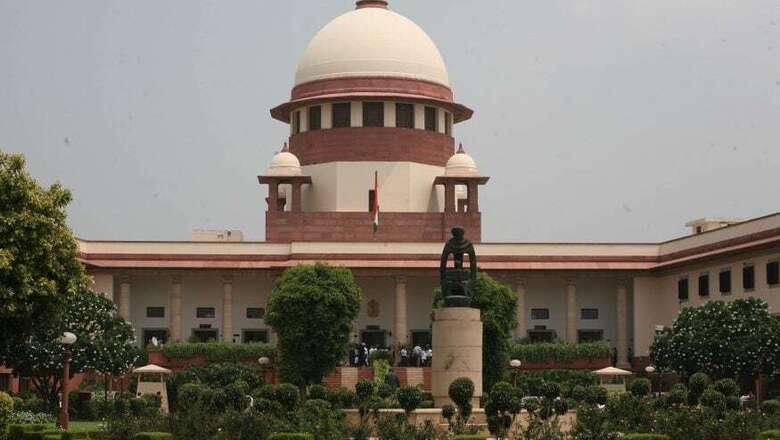
views
Despite safeguards against the arbitrary use of emergency provisions, it is critical that society and the body polity remain cautious of taking the same "unfortunate road" again as it did in 1975, Supreme Court judge Justice S K Kaul said on Saturday. Justice Kaul further said the threat that looms large across the globe "was the probability of triggering emergency-like situations in de-facto manner without taking aid of emergency provisions explicitly".
Justice Kaul was speaking at an event held for the release of a book — The Law of Emergency Powers — authored by senior advocate Abhishek Manu Singhvi and professor Khagesh Gautam, who teaches law at Jindal Global Law School, on a legal and constitutional study of emergency powers. Speaking at the event which was held virtually, Justice Kaul referred to the 1975 emergency and said, "Despite the developments towards strengthening our democracy by providing safeguards against emergency provisions, it remains critical that we as a society and a polity remain cautious of taking the same unfortunate the road again." Justice N V Ramanna, who was the chief guest of the book release ceremony, referred to his own experiences during the 1975 emergency and said that "emergencies have a long lasting impact on the generations (to come)".
He said he saw many young people sacrifice their lives for protecting human rights during the emergency. Justice D Y Chandrachud, who also spoke at the event, also referred to his experiences during the emergency and said, "The unprecedented destruction of civil liberties in the garb of curtailing an internal disturbance serves as a harrowing reminder of state excess. History is replete with examples of civil liberties being casualties of national emergencies".
He said the COVID-19 pandemic, "one of the largest global disruptors", would probably influence scholars of today due to the "fervent and frequent lockdowns, restrictions of movement, enhanced powers of executive" all of which were necessary to tailor a state infrastructure to "battle a deadly virus". Justice Chandrachud said in such situations of state crisis, the judiciary as a counter majoritarian institution has to "adopt a much finer line of judicial review over executive action that is dealing with medical novelties to preserve public health".
He said the book provides a critical reflection of what has happened in the past so that "we as citizens are alive to the dangers of growing executive powers every day of our lives". Justice Surya Kant, who also spoke at the event, laid emphasis on the need for judicial review in view of the creation of "harsh" laws like the Terrorist and Disruptive Activities (Prevention) Act (TADA), Prevention of Terrorism Act (POTA) and Unlawful Activities (Prevention) Act (UAPA) under which the amount of powers delegated to the executive "was indeed a matter of concern".
He said delegation of powers to the executive under these laws was a matter of concern as "it creates a situation which is ripe for arbitrary exercise of powers which would endanger individual liberties and human rights". Justice Kant said such laws were enacted as part of a "steady movement" towards using ordinary legislation and delegated powers to deal with the challenges posed by domestic unrest and terrorism.
He said the Constitution, which is a system of norms given by a body polity, is premised on normal behaviour and historical events and if applied to an extraordinary or super normal event "might produce unpredictable and undesirable results".
.
Read all the Latest News, Breaking News and Coronavirus News here
















Comments
0 comment